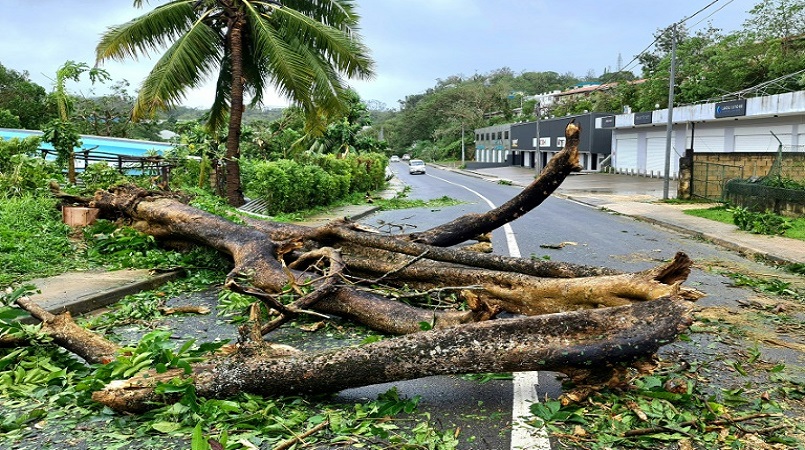
Two Category 4 cyclones hit Vanuatu — one of the world’s most disaster-prone countries — within 72 hours in early March.
Vanuatu is one of the most disaster-prone countries in the world and it is regularly affected by cyclones during the wet season from November to April.
But few in this archipelago nation of more than 80 islands were prepared for two Category 4 cyclones hitting the country within 72 hours in early March.
“The cyclone kept changing direction and the winds were coming from different directions,” said Cathy Hivo, recounting the fearful hours as the second of the two cyclones churned across Port Vila, Vanuatu’s capital, on March 3.
“The roofing iron on the house next door tore off and hit one of our windows,” she told Al Jazeera.
Cyclone Judy had just passed over the archipelago on March 1 when Cathy and her husband Ken endured the second bout of extreme weather, battened down inside their home for more than six hours as the strong winds and driving rain of Cyclone Kevin raged from late afternoon until about 11pm.
“It got stronger and stronger,” said Ken Hivo, who is the chief of the Freswota settlements in Port Vila.
“We were told it was a Category 3 cyclone, but it then became Category 4. We have been experiencing stronger cyclones, so we knew what to do,” he said, recounting methods to secure windows and roofs so they do not get ripped off by cyclones.
Not everyone was so fortunate. Many homes could not withstand the cyclonic winds and lost their roofs and walls. Some structures collapsed entirely.
“Thankfully, no lives were lost,” Chief Hivo said, adding that many had lost their homes or sustained storm damage.
While post-cyclone recovery for people in Port Vila will take time, it will be counted in years for the less fortunate residents of the city’s informal settlements like Freswota.
It takes a ride in a local minibus to reach the sprawling Freswota settlements that are home to more than 12,000 people on the outskirts of Port Vila, and Freswota is just one of more than 20 informal settlements on the outskirts of the capital.
Visiting on a recent morning, the area’s unpaved streets had turned to mud after a heavy downpour of rain.
The rapid growth of informal settlements in Pacific Island cities such as Port Vila has been driven by Islanders drawn to the prospect of jobs and better access to education and public services in capitals and major towns. For decades, the growth of settlements in Vanuatu and other island nations has outpaced the capacities of their governments to respond with urban planning, infrastructure and services.
Settlements have mushroomed — often on flood-prone land where tenure rights are uncertain — and so have unsafe, informal housing and overcrowded living conditions that are particularly vulnerable to the more extreme consequence of climate change.
Residents of Freswota range from those in permanent employment to the jobless, but what they all have in common is their low incomes. The recent pair of cyclones have only added to the residents’ hardships.
There was no power for a week and a half after Cyclone Kevin, and it is still down in some parts of the community.
“You’re looking at houses that have been damaged and some just totally destroyed”, said Soneel Ram, a Pacific country communications manager for the International Federation of Red Cross and Red Crescent Societies.
“The urgent needs here are shelter and clean, safe drinking water, because most of these communities rely on rivers and streams as their water source, but the debris have polluted these water sources,” Ram told Al Jazeera.
The Red Cross has provided tarpaulin to make temporary shelters, and water and hygiene kits, Ram added.
